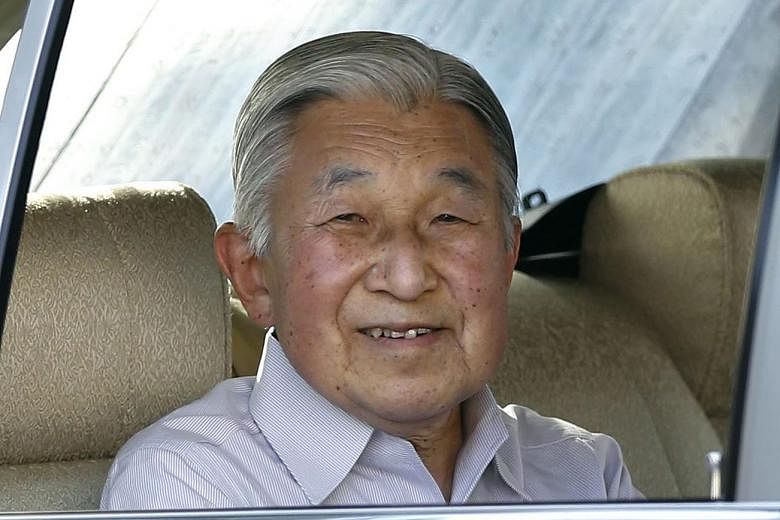Japanese Emperor Akihito, 82, recently announced that he would consider stepping down from the throne if he became unfit to perform his duties as the king.
Should he abdicate, Emperor Akihito would be the first emperor to resign from the Chrysanthemum Throne in 200 years.
His abdication would also place him among the ranks of other monarchs who have relinquished the throne in the last 10 years.
Here is a look at other abdications in recent history.
1. King Juan Carlos I, 78, of Spain
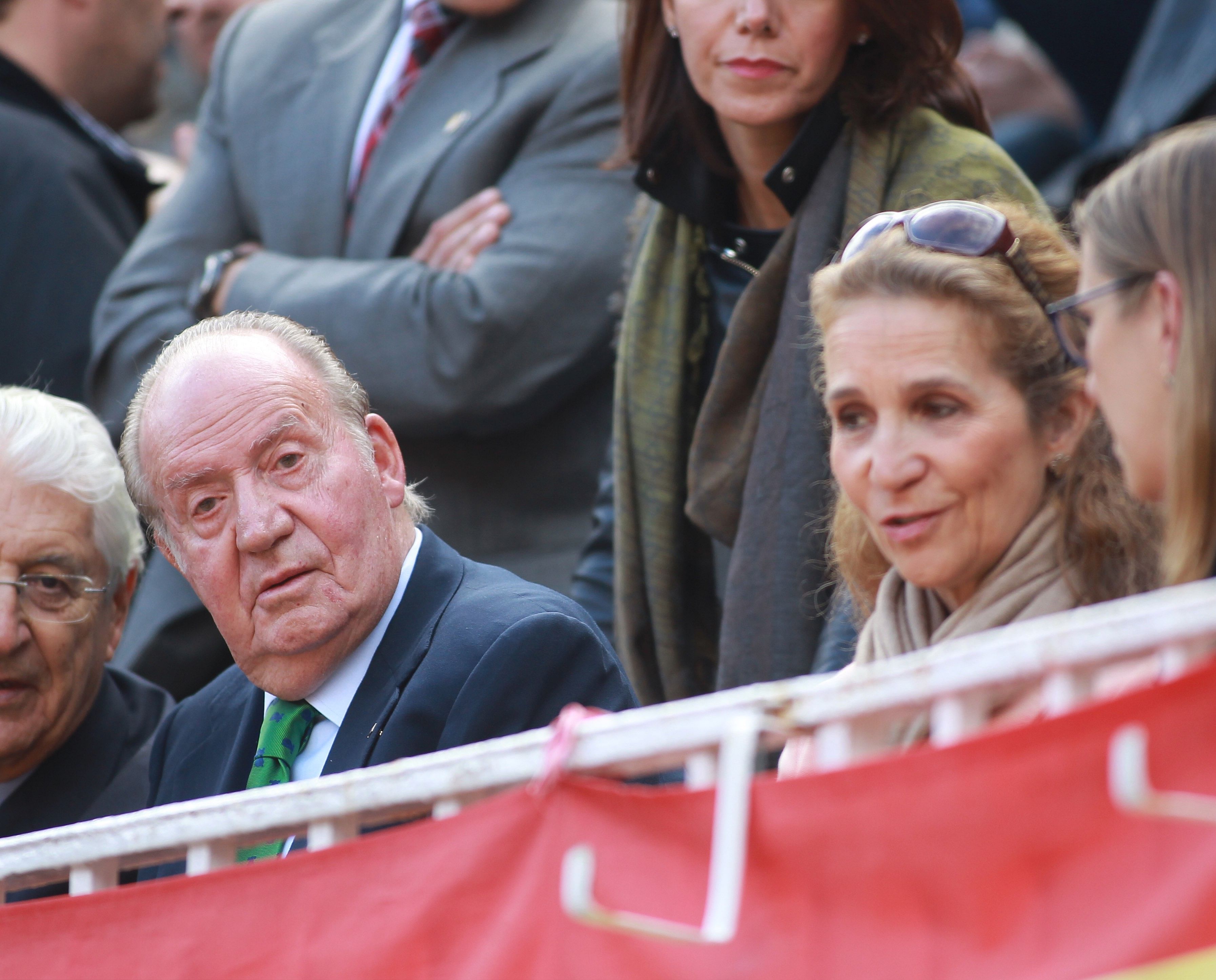
The former king had abdicated on June 18, 2014, after being in power for 39 years. He had passed the throne to his son Felipe VI, 48.
His resignation came in the wake of his waning popularity due to a spate of family corruption scandals that focused on his daughter, Princess Cristina, 51, and his son-in-law, former Olympic handball player Inaki Urdangarin, 48.
The couple were investigated for tax fraud and embezzlement and are currently awaiting the verdict of their case.
The scandal had placed a spotlight on the royal family's lifestyle and expenses during a time of record unemployment and economic struggle in Spain.
In his resignation announcement and national address on June 2, he said that it was time for a new generation to take over and helm the country through its numerous challenges.
He believed that ushering new blood into the monarchy would "open a new era of hope" for the Spanish people, and said that his son was prepared to take on the heavy responsibility.
Despite the recent controversy, Juan Carlos would always be remembered for the role he played in returning democracy to Spain after the death of General Francisco Franco in 1975.
Juan Carlos had helped to dismantle the authoritarian establishment of the former Spanish dictator by reintroducing political parties into Spain.
2. King Albert II, 82, of Belgium
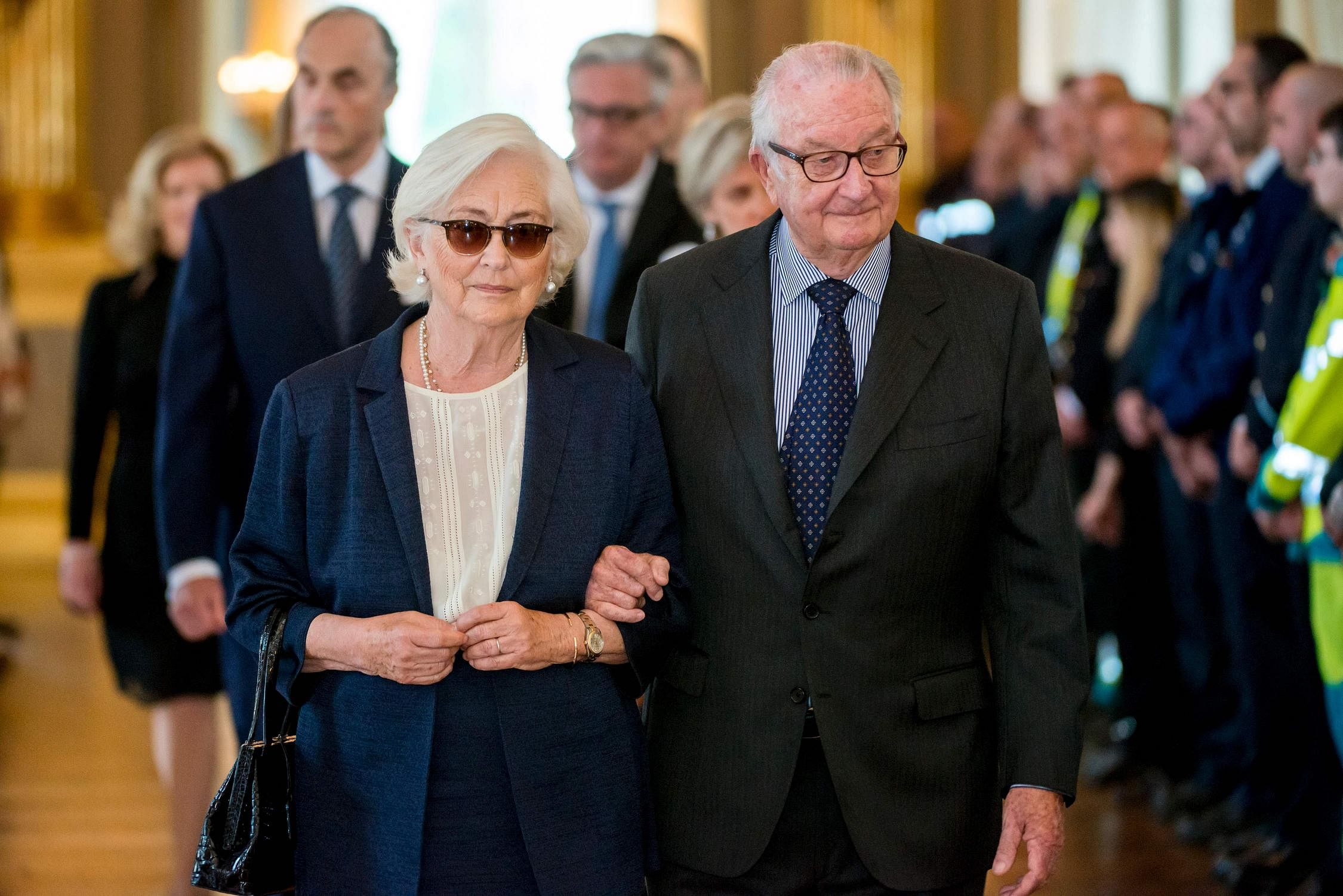
The King of the Belgians formally stepped down from the throne on July 21, 2013, and was succeeded by his eldest son, King Philippe, 53.
The then 79-year-old monarch had decided to resign on the grounds of ill health and old age.
After being on the throne for 20 years, the former king's abdication had come as a surprise to the nation. His resignation marked the first time a Belgian monarch had voluntarily stepped down from the throne.
In his final address to the nation as the king, he stressed that Belgium must remain a "source of inspiration" to Europe, and emphasised his wish for Belgium to remain united despite the linguistic split between the Dutch-speaking north and the French-speaking south.
Albert II's dedication to keeping Belgium united had featured prominently during his tenure.
He had played a central role in mediating between political leaders during the 2010-11 parliamentary stalemate in Belgium.
3. Emir of Qatar, Sheikh Hamad bin Khalifa al-Thani, 64
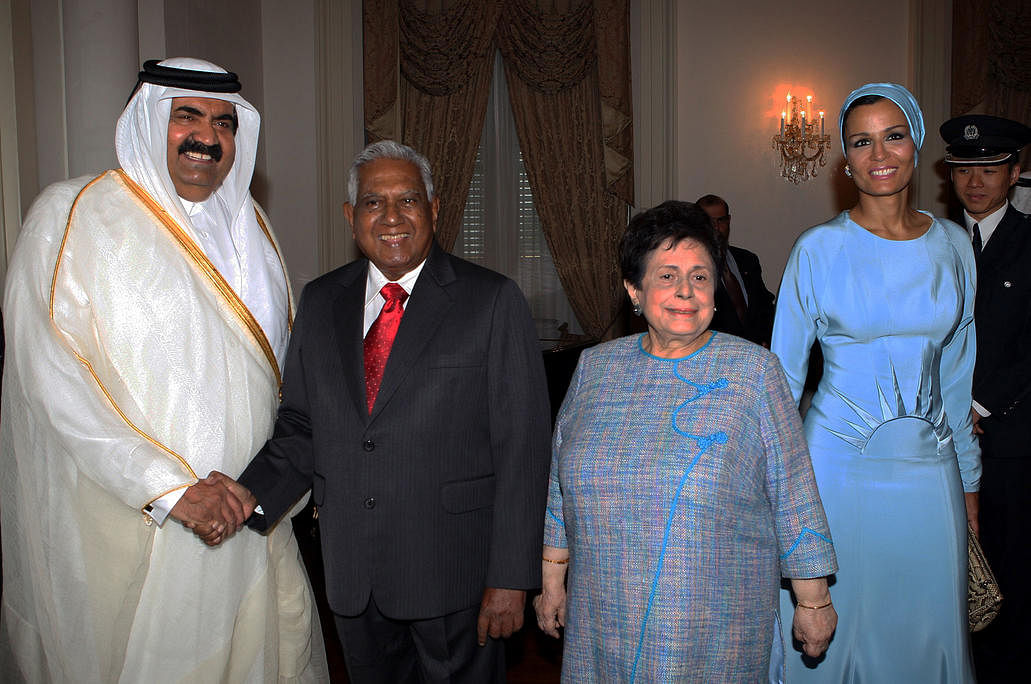
Sheikh Hamad bin Khalifa al-Thani had handed power over to his son, Sheikh Tamin bin Hamad al-Thani, 36, on June 25, 2013.
His decision had made waves internationally as many had not expected him to relinquish the throne during the height of his power and influence.
Sheikh Hamad had held power for 18 years after usurping his father's position through a bloodless coup in 1995.
During his reign, he had managed to transform Qatar from a small, sleepy desert into a major global power by utilising the country's vast oil and gas reserves.
The sixth Emir of Qatar had also founded the pan-Arab satellite news channel, Al Jazeera TV, which has played a central role in Arab politics. It was also the means by which Sheikh Hamad maintained his influence over the Arab world.
Known to be a progressive leader, he also played an active role in developing sports in Qatar.
He helped to lead the country to host high profile sporting events, most notably the 2022 Fifa World Cup.
Not much is known about the former Emir of Qatar's resignation. Some have attributed it to his declining health.
The sheikh himself had said it was time to "open a new page" in Qatar's history, and expressed confidence in his son's capabilities to continue his legacy.
4. Queen Beatrix, 78, of the Netherlands
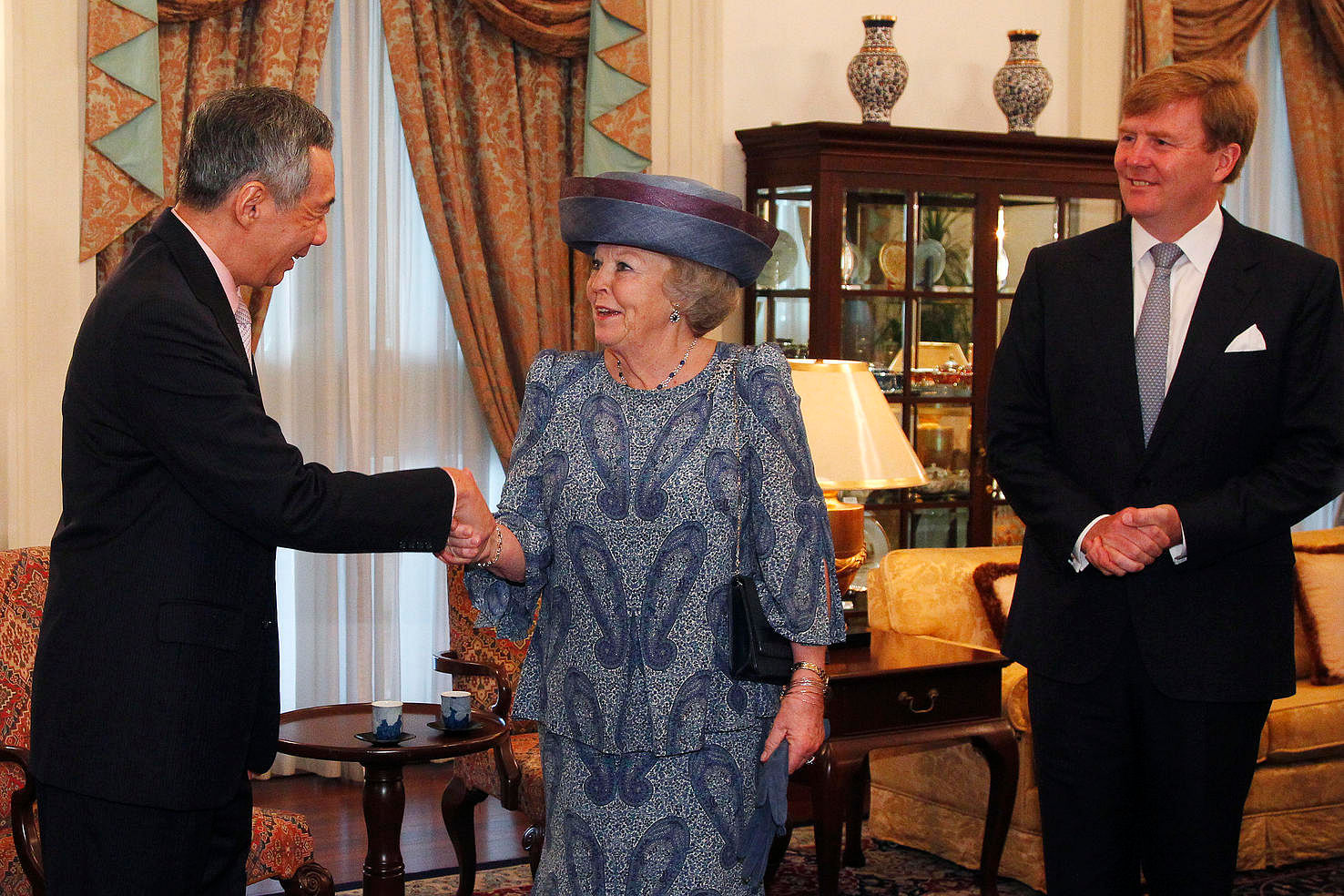
Queen Beatrix had abdicated in favour of her son, Prince Willem-Alexander, 49, on April 30, 2013.
The incoming monarch became the country's first king since 1980.
Queen Beatrix had enjoyed 33 years on the throne before she resigned on her 75th birthday. She was the sixth monarch from the House of Orange-Nassau.
Affectionately known by the people as Queen Bea, she had said during her resignation announcement that it was time for the throne to be held by "a new generation".
During her abdication ceremony, she thanked the nation for giving her the strength to serve on the throne for the past three decades.
Queen Beatrix's abdication had been widely speculated prior to her announcement because it had become a tradition for the monarch to step down from the throne in the Netherlands in recent decades.
Her mother Juliana and her grandmother Wilhemina had also resigned from their royal tenure in 1980 and 1948 respectively.
5. King Gyanendra, 69, of Nepal
Unlike his peers, King Gyanendra was forced to abdicate on May 28, 2008, after the newly elected Nepalese Constituent Assembly had voted to end Nepal's 239-year-old monarchy.
The former Nepalese king said goodbye to the throne on June 11, 2008, and now lives as a civilian in Nepal. Though he is no longer in charge of the nation, he still expresses an active interest in the country's politics.
Gyanendra had held the throne since 2001, after his brother, King Birendra, was assassinated during a palace dinner party.
Though the Crown Prince Dipendra has been blamed for the massacre, there are some who believe the the former monarch had a role in orchestrating the murder.
6. King Jigme Singye Wangchuck, 60, of Bhutan
King Jigme Singye Wangchuck had abdicated as King of Bhutan in 2006. He handed over the throne to his eldest son, Jigme Khesar Namgyel Wangchuck, 36.
The former king had officially relinquished absolute power in 1998 and had announced his resignation in 2005.
After his resignation, he ruled in conjunction with the government, an assembly, and a royal advisory council.
He had initially planned to resign in 2008 when Bhutan held its first parliamentary elections, but decided to step down earlier.
King Jigme was Bhutan's first hereditary monarch as well as one of the world's youngest kings. He had first came to power in 1972 when he was 16 years old.
His son, the Crown Prince, studied in Oxford before he returned to Bhutan to aid his father during the Bhutanese military offensive against anti-Indian rebels in December 2003.
He is the current reigning king of Bhutan, which is now a constitutional monarchy.
Sources: The Wall Street Journal, BBC, The New York Times, The Independent, Time Magazine, The Telegraph, Reuters
